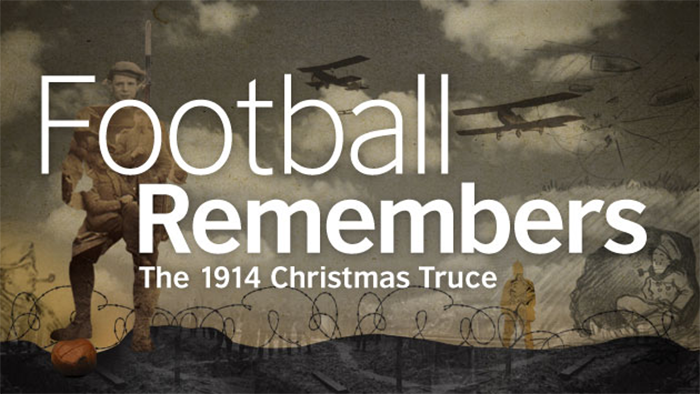
Sunderland RCA FC are to commemorate the centenary of one of the most iconic moments of the First World War - the 1914 Christmas Truce – as part of a week of remembrance activity in December 2014.
’Football Remembers Week' will take place from 5-14 December. A joint collaboration between The FA, the Premier League, the Football League and the British Council, the aim is to engage football fans and players at every level about what took place on Christmas Day one hundred years ago on the battlefields in Belgium.
On 25 December 1914, soldiers from both sides put down their weapons and crossed into ‘no man’s land’ to share in an impromptu ceasefire. First-hand accounts from the time include references to football being played and photographs taken.
All photos uploaded to social media using #footballremembers will be automatically uploaded to a special website – www.footballremembers.com. The site will act as a moment of record of football in 2014, a century on from the First World War, and will be preserved for future generations.
HRH The Duke of Cambridge, President of The FA, said: “It promises to be a powerful way to engage and educate young people about such an important moment in our history. We all grew up with the story of soldiers from both sides putting down their arms on Christmas Day, and it remains wholly relevant today as a message of hope over adversity, even in the bleakest of times.”
Ernie Williams from Stockport, a private who served in the 6th Cheshire Territorials at Ypres at Christmas 1914, was interviewed for BBC Grandstand in 1983.
Christmas Eve – the Germans – we could hear singing. We guessed they were Christmas carols.
No shooting?
No, no, no shooting at all. We never fired a shot. Christmas Eve or Christmas Day. And it went on for two or three days. Mind you the officers, when we starting swarming over the trench tried to rush us back. They didn’t want – some of them – ‘Get back you fools,’ and all that sort of thing, but we didn’t take any notice.
So how did that meeting come about in No Man’s Land?
Well, all I can tell you is this. That when I looked over the top of the trench I could seein the distance, in the mist, about four or five figures assembled and gradually they swarmed out of the trenches on both sides and soon it was a mass of soldiery in No Man’s Land.
Exchanging cigarettes?
Cigarettes, goodies from Christmas parcels, and what have you.
How did the football come about?
Of course there was a mass of people there. It appeared from somewhere and I didn’t know where. It came from their side, it wasn’t from our side where the ball came.
It was a proper football?
It was a proper football yes, and they kicked it about. They made like goals and one fellow went in goal and then it was a general kickabout.
How many people were taking part, do you think?
Well, it was at least a couple of hundred.
Did you kick the ball?
Oh yes, I had a go at it. I was pretty good then, at nineteen (laughs).
In what sort of spirit was the football match played?
Everybody seemed to be enjoying themselves. There was no sort of ill-will between. There was some of them that could speak English of the Germans, I don’t think there was many of our side that could speak German.
Was there a referee?
Oh, no referee. No you didn’t need a referee for that sort of a game.
Do you remember what the score was in the football?
Oh, there was no score. No tally at all. It was simply a melee. Nothing like the soccer you see on television actually, oh no. The boots you wore was a menace. You know, the great big boots you had on. In those days the balls were made of leather and they got very soggy.
